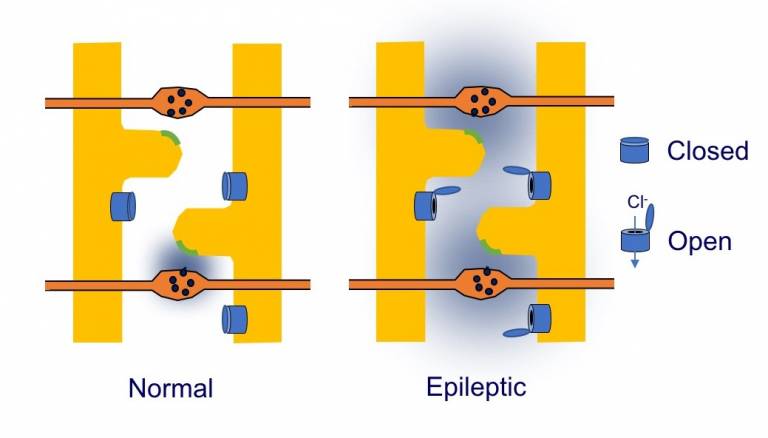New gene therapy could reduce epileptic seizures
19 July 2018
A new gene therapy being developed by researchers at UCL Institute of Neurology could help prevent epileptic seizures.

The researchers, led by Professor Dimitri Kullmann, tested the therapy, which stops brain cells from firing as soon as they sense an excessive increase in brain activity.
Approximately one third of the 70 million people worldwide with epilepsy continue to have seizures even if they are receiving treatment. Antiepileptic drugs do not currently differentiate between the neurons involved in seizure generation and the neurons underlying normal brain function.
The autoregulatory treatment developed by Professor Kullmann involves injecting a harmless lentivirus, which expresses an inhibitory protein, into the brain. The protein activates only when it detects an increase in the glutamate in the brain - a result of excessive brain activity that occurs during a seizure. It does not activate during normal brain function.
The researchers - who published their findings in Nature Medicine - tested the gene therapy in rats, finding a substantial decrease in seizures among treated rats that were initially made to develop epilepsy. The rats performed normally on motor coordination tests, suggesting that the treatment is well-tolerated.
The researchers are preparing a follow-up study investigating how to make the treatment suitable for use in humans.
Professor Kullmann said, "Although more work is needed, we hope that this will lead to a new treatment for many people with drug-resistant epilepsy."
This study was funded by the European Union, Wellcome and the MRC, and was covered in iNews.
 Close
Close

